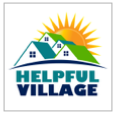Blog archive
March 2025
About Senior Solutions
03/28/2025
Building a Bridge With Journey House, A Home Base for Former Foster Youth
03/28/2025
Come for the Knitting, Stay for the Conversation... and the Cookies
03/28/2025
Creating Safe and Smart Spaces with Home Technology
03/28/2025
Finding Joy in My Role on The Pasadena Village Board
03/28/2025
I've Fallen and I Can't Get Up!
03/28/2025
Managing Anxiety
03/28/2025
Message from Our President: Keeping Pasadena Village Strong Together
03/28/2025
My Favorite Easter Gift
03/28/2025
The Hidden History of Black Women in WWII
03/28/2025
Urinary Tract Infection – Watch Out!
03/28/2025
Volunteer Coordinator and Blade-Runner
03/28/2025
Continuing Commitment to Combating Racism
03/26/2025
Status - March 20, 2025
03/20/2025
Goodbye and Keep Cold by Robert Frost
03/13/2025
What The Living Do by Marie Howe
03/13/2025
Racism is Not Genetic
03/11/2025
Bill Gould, The First
03/07/2025
THIS IS A CHAPTER, NOT MY WHOLE STORY
03/07/2025
Dramatic Flair: Villagers Share their Digital Art
03/03/2025
Empowering Senior LGBTQ+ Caregivers
03/03/2025
A Life Never Anticipated
03/02/2025
Eaton Fire Changes Life
03/02/2025
February 2025
Commemorating Black History Month 2025
02/28/2025
Transportation at the Pasadena Village
02/28/2025
A Look at Proposition 19
02/27/2025
Behind the Scenes: Understanding the Pasadena Village Board and Its Role
02/27/2025
Beyond and Within the Village: The Power of One
02/27/2025
Celebrating Black Voices
02/27/2025
Creatively Supporting Our Village Community
02/27/2025
Decluttering: More Than The Name Implies
02/27/2025
Hidden Gems of Forest Lawn Museum
02/27/2025
LA River Walk
02/27/2025
Message from the President
02/27/2025
Phoenix Rising
02/27/2025
1619 Conversations with West African Art
02/25/2025
The Party Line
02/24/2025
Bluebird by Charles Bukowski
02/17/2025
Dreams by Langston Hughes
02/17/2025
Haiku - Four by Fritzie
02/17/2025
Haikus - Nine by Virginia
02/17/2025
Wind and Fire
02/17/2025
Partnerships Amplify Relief Efforts
02/07/2025
Another Community Giving Back
02/05/2025
Diary of Disaster Response
02/05/2025
Eaton Fire: A Community United in Loss and Recovery
02/05/2025
Healing Powers of Creative Energy
02/05/2025
Living the Mission
02/05/2025
Message from the President: Honoring Black History Month
02/05/2025
Surviving and Thriving: Elder Health Considerations After the Fires
02/05/2025
Treasure Hunting in The Ashes
02/05/2025
Villager's Stories
02/05/2025
A Beginning of Healing
02/03/2025
Hectic Evacuation From Eaton Canyon Fire
02/02/2025
Hurricanes and Fires are Different Monsters
02/02/2025
January 2025
At Dawn by Ed Mervine
01/31/2025
Thank you for Relief Efforts
01/31/2025
Needs as of January 25, 2025
01/24/2025
Eaton Fire Information
01/23/2025
Escape to San Diego
01/19/2025
Finding Courage Amid Tragedy
01/19/2025
Responses of Pasadena Village February 22, 2025
01/18/2025
A Tale of Three Fires
01/14/2025
Emergency Preparedness: Are You Ready?
By Suzi HogePosted: 05/28/2024
On May 15, an Emergency Preparedness meeting was organized by Doug Colliflower, one of our Villagers. Approximately 20 Villagers attended to hear the valuable information and have lunch afterward.
Deb Halberstadt of the Senior Red Cross gave a PowerPoint presentation to share strategies to prepare yourself and your home --- before, during, and after a disaster. An important reminder is that in a major disaster you and your neighbors will be the actual first responders, as the traditional first responders will be doing broad assessments and dealing with systemic issues. So, an advance, important preparation is to get to know your neighbors. The Red Cross actually offers a program called Map Your Neighborhood, to help neighbors share information like knowing where the shut-offs are for water, electricity and gas.
Emergency kits can serve various needs. A personal kit usually contains a 3-day supply for one person. A family kit aims to supply a family for 2 weeks. A bed kit is focused on the immediate minutes after an earthquake — extra eyeglasses, flashlight and batteries, gloves, shoes, whistle, and perhaps a small crowbar. A pair of shoes should always be kept by the bed since half of all earthquake injuries come from broken glass. A good suggestion is to assemble a bed kit in a pillowcase and tie it to the bedpost or bedframe so it is always available.
Emergency supplies should be assembled and stored ahead of time — water, food, medicines, toilet paper, toys and games to keep folks occupied, pet supplies, first aid kit, flashlight and batteries, manual can opener, toiletries, work gloves, cell phone, car charger (in the car), solar and/or crank chargers for radios/phones, cash, whistle, warm clothes and shoes, important documents.
In addition to knowing your neighbors, make sure that you know how to turn off your water, gas and electricity. Knowing the neighborhood and various routes that could be used in case of emergency or road blockage is also important preparation.
All members who participated in the meeting received a brightly marked plastic envelope in which to store important documents (or copies of these documents): Drivers licenses and/or ID cards; emergency contact list; passports; birth certificates; Social Security cards; medical insurance cards; immunization records; prescription lists; cash in small bills; bank account numbers; credit card and company numbers.
Tips were shared during the presentation and discussion:
- Good to keep whistles around the house to be used in case of emergency. (If you’re trapped or injured a whistle works much better than your voice.)
- Take photos of your household items and rooms — in case you need to document losses or identify items later.
- Be sure to have a physical list of important phone numbers and contact information – cell phones may not be working.
- Paper maps may be needed if you need to leave an area and GPS is not available. (AAA still has maps available.)
- Write down important communication resources:
- KNX 1070 am – an emergency radio broadcast station (including Red Cross shelter information)
- KFI 640 am – an emergency radio broadcast station
- Sign up for Reverse 911 to receive emergency notifications on your cellphone


